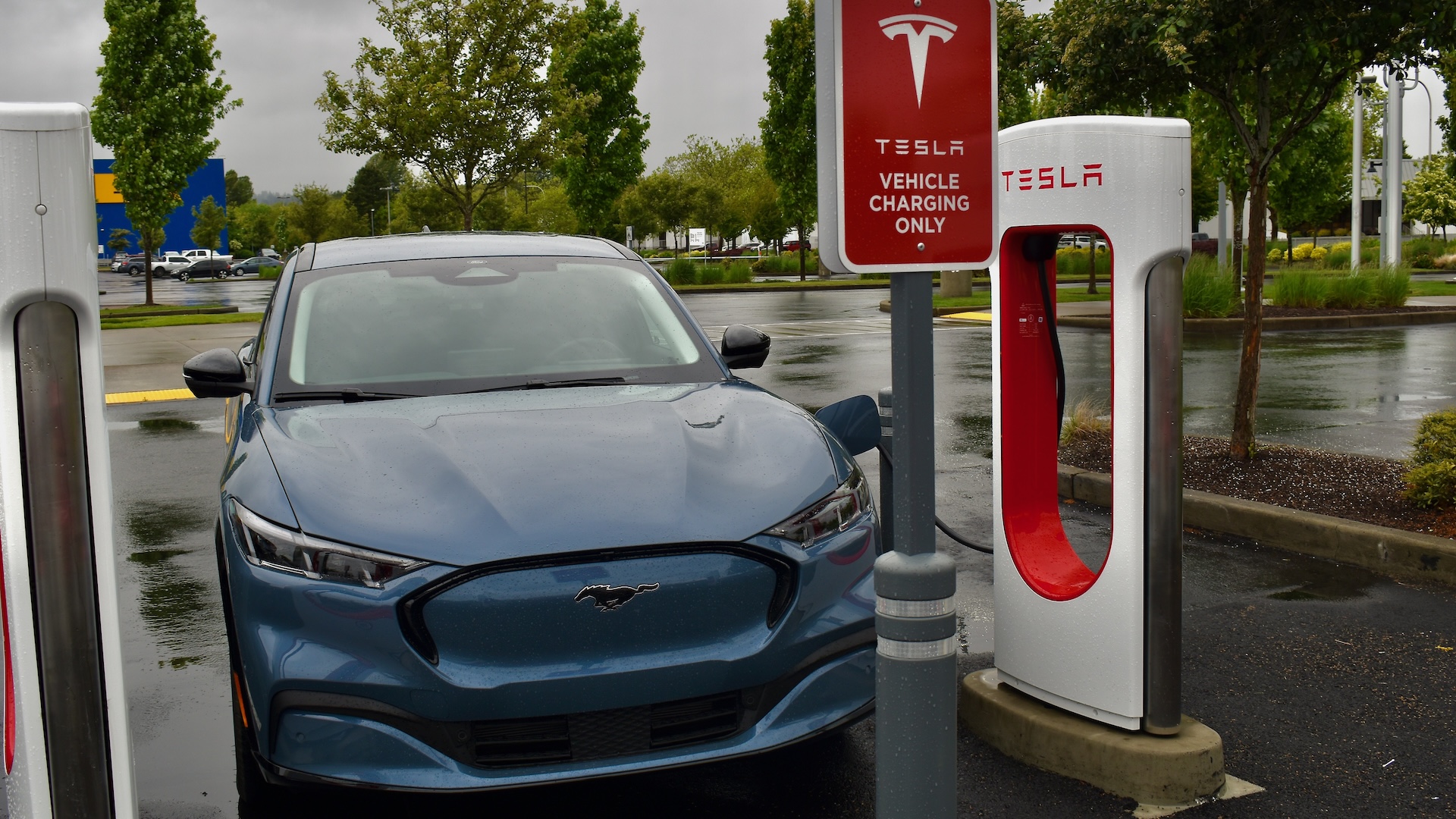

Last year, legacy automakers began striking deals with Tesla that would allow their cars access to the Supercharger network. This effectively standardized Tesla’s NACS connector in the United States, streamlining further buildout of our EV charging network. But the change is taking longer than anticipated, as Tesla is reportedly lagging in providing support for other automakers to use the Superchargers as agreed.
The delays are twofold according to The New York Times, stemming from both the production of CCS-NACS charging adapters and the completion of compatibility software on Tesla’s side. The outlet speculates that Tesla is dragging its heels on following through with Supercharger licensing deals, which sacrificed the exclusivity that helped form the foundation of Tesla’s appeal. Supposedly, the legacy makes impacted by the delay are staying quiet about their frustration, and avoiding the risk of getting on the bad side of Tesla’s outspoken CEO Elon Musk.

One of the most prominently affected companies is said to be General Motors, whose vehicles were supposed to be able to access Superchargers earlier this year. But that milestone may have been delayed when Musk gutted Tesla‘s charging department, before only partially restaffing it. GM reportedly remains confident it will be keyed in before 2025, but that’s only half of the problem.
Earlier this year, Ford acknowledged it was having trouble sourcing CCS adapters, which its suppliers weren’t keeping up with. Rivian too is now reportedly having the same issue, and the gap isn’t exactly being bridged by Tesla. The company said on X that it’s producing 8,000 adapters per week, but many awaiting these connectors expect them for free, as Ford has offered to its own EV customers.
This situation may therefore only preview a problem that could be in store once the software underpinnings are established. Adapters are but an interim solution while automakers switch their cars to NACS infrastructure to replace CCS within the next few years, but even then, another problem looms. Tesla’s buildout of new chargers has reportedly nosedived in the second half of 2024 so far, and is supposedly on track to fall short of the number built in 2023. No software, no hardware, and no keeping up with demand—it’s a problem Tesla may be glad to saddle its competitors with, for as long as it has demand problems of its own.
Got a tip or question for the author? You can reach them here: james@thedrive.com